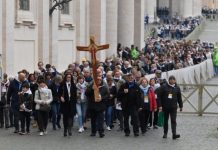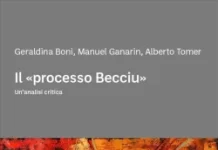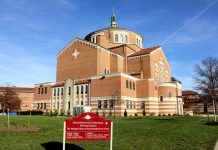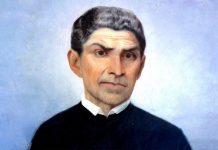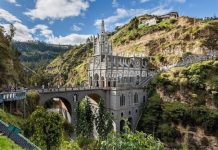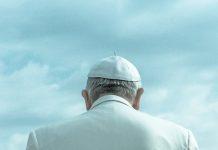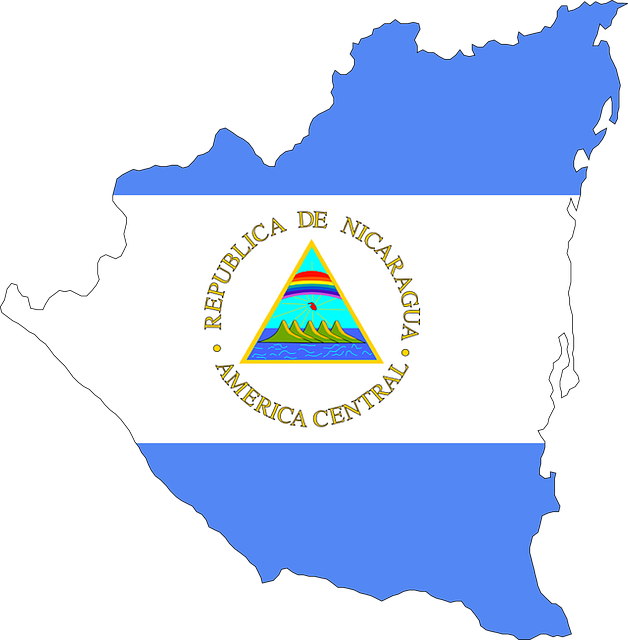Seven close associates of Bishop Rolando Álvarez of Matagalpa have been expelled from Nicaragua to the United States, according to a Feb. 9 deportation order.
Newsroom (11/02/2023 7:21 PM, Gaudium Press) — On Feb. 9, the Court of Appeals of Managua released a “deportation sentence” by which 222 political prisoners were sent from Nicaragua to the United States.
The National Assembly quickly moved to pass a law by which all of them were stripped of their Nicaraguan nationality.
Most preliminary reports indicate that the Nicaraguan regime forcefully took the prisoners and boarded them onto a plane, although some reports also indicate that some of the prisoners resisted deportation.
Sources close to the bishops’ conference provided the list of deported prisoners, which included seven collaborators of Bishop Rolando Álvarez of Matagalpa, who last week were sentenced to 10 years in prison.
The people sentenced include three priests: Ramiro Tijerino, the rector of the Universidad Juan Pablo II; José Luis Díaz, vicar of the Cathedral of Matagalpa; and his predecessor Sadiel Eugarrios.
The list also includes seminarians Darvin Leiva and Melkin Centeno, Deacon Raúl Vega, and a cameraman who worked for the diocese, Sergio Cárdenas. In addition, it includes Manuel Obando and Wilberto Artola, two other lay workers of the Diocese of Matagalpa.
Bishop Rolando Álvarez was not on the list. There have been conflicting reports on the status of the bishop. Some claim that he resisted being exiled and that he was sent to El Chipote prison, notorious for being a torture centre for political prisoners, where most of the 222 deported Nicaraguans were being held. According to the report, Álvarez said that he wanted the other priests to be free and that “[he] will serve their sentences.”
Father Óscar Benavidez, who was a close collaborator with Álvarez, was also included on the deportation list. Benavidez was arrested on Aug. 14 after preaching a homily critical of human rights abuses occurring in Nicaragua.
The priest had been sentenced to 10 years in prison and “civil death” for conspiracy.
Civil death, officially known as “perpetual loss of citizen rights,” is a penalty under which the condemned loses their right to Nicaraguan nationality, to have an ID card, a passport, a work permit, a driver’s license, and even civil rights such as free speech and association.
According to local outlet Despacho 505, which had access to the judicial files of the case, the prosecutors requested the “perpetual loss of citizen rights” against Benavidez. The penalty would lead him to lose his right to work as a priest in Nicaragua.
The penalty has been criticized because it does not exist in the Nicaraguan Constitution or its Criminal Code, and many legal experts believe it is unconstitutional.
“Disqualification is a legal figure that exists in the Nicaraguan criminal laws. It disqualifies someone to exercise public or professional positions and is contemplated for certain crimes,” Nicaraguan attorney Martha Molina said.
“However, what you see in Fr. Benavidez’s case and what some media are reporting about the other priests is a legal aberration, because [civil death] does not exist under Nicaraguan law.”
“A judge cannot wipe out an inherent human right perpetually. It also contradicts international human rights law,” Molina added.
Benavidez’s sentence was pronounced by judge Nadia Tardencilla, who, according to local activists, is part of a large number of recent judges appointed by the Ortega regime in Nicaragua specifically to process cases of political dissidents.
The trial for the seven men started on Jan. 23. All seven were declared guilty three days later. The sentencing hearing was set for Feb. 3. It is not clear why the sentencing was not made public for nearly a week.
Very little official information is known about the trial. According to local sources, the prosecutor presented 13 witnesses, including six police officers. However, the evidence presented by the prosecutor and the testimony provided by the witnesses was not made public.
In addition, the defence attorneys chosen by the defendants were not permitted to attend the trial. A public defender attended instead.
“Why are their attorneys not given copies of the sentences? How can they appeal a secret sentence? Why don’t the files leave the judges’ dockets to be archived, as with other files?” asked Yader Morazán, a local lawyer and human rights activist.
As the text of the sentence was not made public, it is unclear whether “civil death” is included to the full extent in the cases of Álvarez’s other collaborators.
“From what I understand, they were not sentenced to civil death, but to a disqualification from public office. However, I would wait to read the sentence to be sure,” Morazán told The Pillar.
“Journalists are not the best in interpreting law [in Nicaragua], if it’s difficult sometimes for us lawyers, you can imagine,” he added.
However, the National Assembly passed a law stripping the 222 exiled prisoners from their Nicaraguan nationality, which would largely have the same effects as a “civil death” sentence.
Álvarez and his collaborators were sent to prison on Aug. 19, after a two-week standoff in the curial building of Matagalpa. Bishop Álvarez was placed under house arrest, while the other inmates were sent to El Chipote prison.
The Nicaraguan regime had offered Álvarez the possibility of going into exile, which he refused. Both the stringent sentences against his collaborators, and the recent change of date of his trial – from March 28 to Feb. 15 – could attempt to pressure him to accept the offer of exile.
El País reported that, according to local sources, the prosecutor in Álvarez’s trial is building the case against him by using his homilies where he bitterly criticized the regime as proof of a conspiracy against the government.
Álvarez had long drawn the ire of the government for protesting the human rights violations and the persecution of the Church in Nicaragua. In June, he said law enforcement agents were following him, and he went on a hunger strike in protest. The regime responded by closing the local Catholic TV channel, led by Álvarez.
Then, on July 31, the government announced it was shutting down 10 radio stations owned by the Diocese of Matagalpa.
After Fr. Uriel Vallejos refused to give Telcor – the telecommunications regulator in Nicaragua – the equipment from one of the stations, a 48-hour siege of his parish began, in which law enforcement cut power in the parish and left Vallejos and five laypeople without access to food or water. Álvarez announced a Mass and Holy Hour in the cathedral but was not allowed to leave the curial building.
Vallejos eventually went into exile in Costa Rica. The Nicaraguan regime asked Interpol to capture him after accusing him of “conspiracy.”
Recently, at least three other priests were forced into exile. Fr. Rodrigo Urbina was not allowed to enter the country on Jan. 27 after spending some time in Miami.
And the local lawyer Morazán has reported a Colombian and an Ecuadorian priest of the Neocatechumenal Way were expelled from the country and now live in Costa Rica.
- Raju Hasmukh with files from The Pillar








